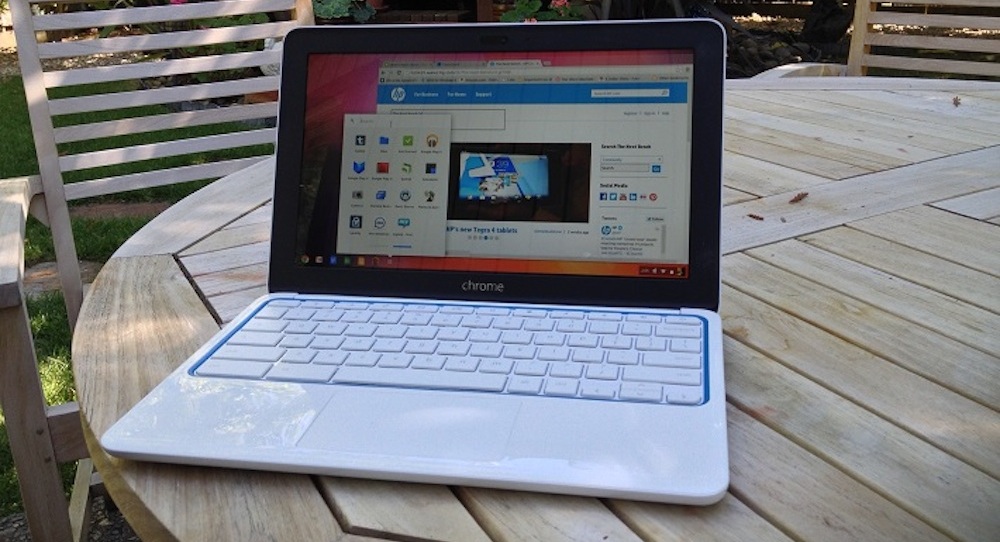
The HP Chromebook 11 enters an increasingly crowded market, where there are (at least in Australia) a good number of choices in Chromebooks around the $300-$400 mark. Already we’ve seen the Samsung Chromebook, Acer C7, Acer C720 and glimmers of an HP Chromebook 14, but there is definitely room left for innovation in this space.
Chromebooks are often criticised for limited functionality, or being rather underpowered, but there have been exceptions to this. With a solid build, a vastly improved design (compared with some of the very practical, industrial Chromebooks we’ve seen so far), the HP Chromebook 11 makes a bit of a splash with its rounded edges, white plastic and colourful keyboard backings.
Is the HP Chromebook 11 worth the $399 asking price? Let’s take a look.
- Beautiful design
- Great sound for a cheap laptop
- Superquick boot time
- Micro USB charging port
- Included 100 GB of free Google Drive storage for two years
- Touchpad is a bit hit and miss
- Lacks much by way of connectivity — no USB 3, no HDMI-out, no SD card slot
- Plastic panels attract fingerprints, and the screen and keyboard will need a regular wipe
How it looks
This has to be one of the biggest pros for the Chromebook 11 — the actual design of this laptop reminds me of the previous model Macbook from Apple; stunning, white plastic with curved edges and a smooth finish. It’s more than pretty looks though. The Chromebook 11 is surprisingly solid, bolstered by an internal magnesium frame to reduce flexing, and strong plastic panels on the outside.
Colourwise, the Chromebook 11 comes in black or white, and as an added bonus, the white version features a choice of four “accent colours” — blue, green, yellow or red — allowing you to place a highlight colour below the keyboard and on the foot pads. This pretty little thing isn’t too heavy either; at just a smidge over 1 KG, it’s easy to picture throwing the Chromebook 11 in your bag for the day’s use and forgetting it’s even there.
Speakers are present, yet well hidden; they’re placed under the keyboard, which not only hides unsightly speaker grills, but also gives the sound a presence that makes it seem like the sound emanates from the very centre of the laptop; it’s something you have to see yourself to really appreciate. The 11.6″ screen puts out 1366 x 768 resolution; just a bit too small for 1080p video, though it can handle 720p with aplomb. The display is bright and colourful, easily viewable from wide angles which makes it great for sharing with others or viewing in unusual positions (read: watching movies in bed, perhaps).
Like many other Chromebooks, unfortunately, the Chromebook 11 has a less-than-perfect trackpad. It’s perfectly adequate for scrolling and selecting items, but more complicated gestures like click-and-drag, for example to highlight some text, are less than satisfying. The keyboard is the standard affair; a short through chiclet-style keyboard, similar to that found on the Chromebook Pixel, does the honours here, and it’s neither good nor bad. It does the job.
One of the unique differentiators on the Chromebook 11 is its charger. Gone are the proprietary charging adaptors that mean throwing yet another charger in your bag before you walk out the door. In its place, HP have opted for a Micro USB charging port, so you can charge this laptop anywhere you can charge most smartphones (well, most Android ones, anyway). Beyond this, the charger port also doubles as a Slimport output, so you can throw your content on the big screen with a small adaptor.
Outside the Micro USB charger port, though, connectivity isn’t too exciting; most Chromebooks feature USB 2 (and some USB 3) ports, an SD card reader, an HDMI output, and some have an Ethernet port. The Chromebook 11 has just two USB 2 ports, and a headphone socket. Nothing more.
How it works
Like most of its Chrome-running brethren, the Chromebook 11 features a 16 GB solid-state drive (SSD) which stores the Chrome operating system and your locally cached files. It’s nice and quick, meaning the laptop boots in around 8 seconds (give or take), and it wakes from sleep almost instantly. To give you an idea of how quick this is, if you haven’t witnessed it yourself, in the time it takes to sit down, adjust yourself in your chair, and look around for your mouse, the laptop has booted and it’s ready to go. Even a $2,000 Macbook Pro with SSD struggles to match that speed.
The downside, and there always is one, is that the internal storage is really small. 16 GB doesn’t give you a lot of room to keep media or other things for offline usage (e.g. during a long flight), so you’ll be wanting to keep your movies on a USB stick or external HDD if this forms part of your planned usage. The whole idea behind a Chromebook, of course, is to keep your data, documents and photos in the cloud, so the need for local storage is virtually removed. However, offline storage always has its uses, so the lack of expansion options (beyond a USB stick) is a bit disappointing on HP’s latest.
Storage aside, the Chromebook 11 is powered by a dual-core 1.7 GHz Samsung Exynos 5250 processor and 2 GB of RAM. Compared to some of the faster options around — like the Intel Haswell powered Acer C720 — the Chromebook 11 might seem a bit slower, and that’s because it is. However, for things like web browsing, basic document editing and a bit of photo editing, you’ll be fine here. It’s only the more intensive activities that might cause some stutter, and let’s face it, with a Chromebook, these occasions are fairly few and far between.
The Chromebook 11 can easily be used for daily tasks. Around the Ausdroid office, many of us have ‘Gone Chrome’, and the experience here is no different. Loaded up with QuickOffice (built in) and Google Drive, your basic document editing, word processing and spreadsheeting are taken care of, and with third-party apps downloaded from the Chrome Store, photo editing, social networking and other activities are covered off as well. Just as with any other Chromebook, there are things that the Chromebook 11 can’t do, like installing Microsoft Office, Adobe Photoshop, or any other Windows / Mac software, meaning that those with higher computing demands may well consider the Chromebook 11 to be a secondary device rather than a real desktop / laptop replacement.
My experience has certainly been that a Chromebook can edge out a tablet in my regular use — the added stability and inclusion of a keyboard, with a bigger screen and longer battery life mean that a tablet loses much of its appeal, and while a tablet is better at some things (read: games), the Chromebook does most of what you’d want with a tablet and does it better anyhow. I guess it depends on what you prefer.
Performance and battery life
The Chromebook 11 is an example of contrasts.
Performance wise, it runs much quicker than you’d expect for a non-Intel machine, easily keeping a good pace with multiple tabs open without much of a slowdown. It’s only once you get up to around a dozen tabs open at once that performance starts to drop off, and on an 11″ screen, there’s not going to be too many occasions where you get that many tabs running or need to keep them open anyway.
This performance, though, does come with a bit of a downside. While HP quote the battery life as around 6 hours, under normal running this seems a bit generous; the average battery life seems to float around the four to five hour mark, and it can be a bit less under much heavier loads (e.g. streaming media from Plex). For a lightweight portable device, you’d expect a little bit more in this department. The Acer C720 by comparison can get battery life closer to eight hours in daily use, which is almost twice as good as the four hour average here.
HP Chromebook 11
- Dimensions: 297 x 192 x 17.6mm
- Weight: 1.04kg
- Display: 11.6-inch IPS 1366 x 768
- Processor: Samsung Exynos 5250 (dual-core Cortex A15 1.7GHz + ARM Mali-T604 GPU)
- Connectivity: Dual-band 802.11n, Bluetooth 4.0, 3G/4G LTE optional
- Memory: 2GB DDR3
- Storage: 16GB solid state
- Battery: 30Wh
- I/O: 2x USB 2.0, VGA webcam, microUSB for charging/SlimPort video out, headphone/mic jack
- Price: $399 from JB Hi-Fi and Harvey Norman
The HP Chromebook 11 is a curious little device.
Unlike the Chromebooks that have come before it, this one looks like a laptop you’d actually like to have on your desk. It doesn’t look like every other laptop; it’s bright, it’s white, and rounded edges make it look decidedly like a Macbook, even though it could be well less than 25% of the cost of same.
This is quite a point of differentiation, because once you get past the physical aspects, a Chromebook is a Chromebook; the operating system looks and functions the same regardless of the hardware, and the performance is generally pretty good regardless of the innards.
That’s certainly the case here; the HP Chromebook 11 is no slouch, and keeps pace with (and even exceeds) some of the other Chromebooks on the market at the moment, but in pure brute strength, the Acer C720 is the faster machine.
Considering they’re all around the same price — $399 from the majors — there’s not much between them. It really comes down to a choice of better design vs more processing power, and while on another platform this would seem like a simple decision, on a Chromebook it really just doesn’t matter all that much.
The real letdown, though, is the lack of connectivity options. You can’t just plug the Chromebook 11 into your TV; you need a SlimPort adaptor. That USB 3.0 HDD that you keep your movies on? You can’t plug that into this device and get full speed. You can’t use the SD card from your camera, and if you’ve only got a wired network, then look elsewhere.
Criticism aside, the reality is that the lack of ports doesn’t matter too much for the average user, and for a good-looking, cheap laptop running a rock-solid operating system like ChromeOS, you can’t really go wrong here.

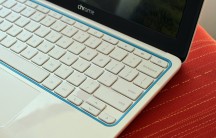
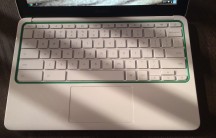
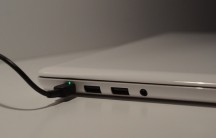
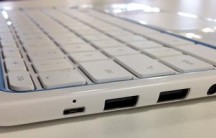

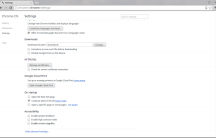

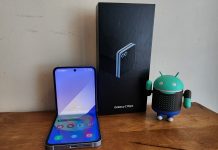
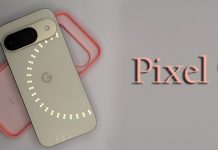
I think you have sold me Chris. Really actually like this Chromebook and considering possibly getting one now!!
Beautifully written Sir.